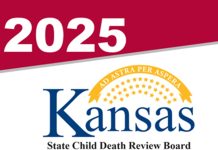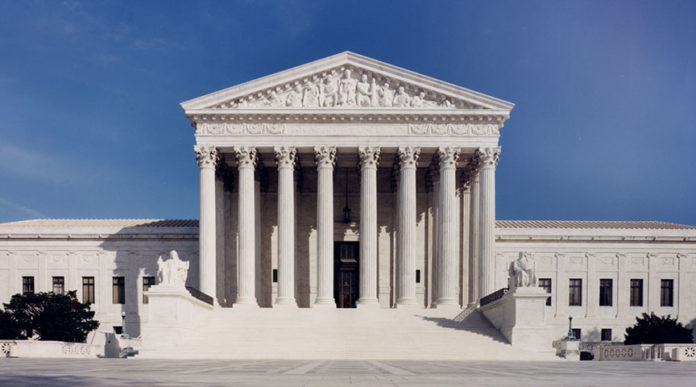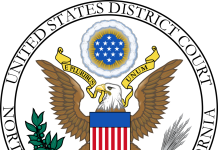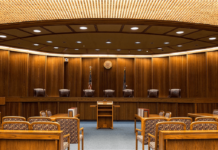(Updated to include comments from Kobach and the ACLU)
Kansas Attorney General Derek Schmidt said Tuesday he will ask the U.S. Supreme Court to review the state law requiring proof of citizenship when registering to vote.
A federal appeals court recently found the law was unconstitutional and upheld a lower-court decision blocking enforcement of the statute.
The U.S. 10th Circuit Court of Appeals ruled that the law heralded by former Secretary of State Kris Kobach disenfranchised 31,000 voters and the district court properly concluded the citizenship requirement imposed a significant burden on the right to vote.
“Voting is only for citizens, and this Kansas law is designed to confirm the citizenship of those registering to vote,” Schmidt said in announcing his decision to appeal.
“After reviewing the appeals court’s decision, we have concluded there is a reasonable basis for appeal.”
Schmidt said there are some who voted for the legislation and have now changed their minds and complain about the cost of defending the law they supported.
“For them, the Legislature convenes tomorrow and they are free to seek repeal of the statute,” Schmidt said.
“But as long as the Legislature and the governor leave this law on the books, we remain committed to giving it a full and robust legal defense.”
The proof of citizenship requirement was passed with overwhelming majorities in the Legislature in 2011. The bill passed 111-11 in the House and 36-3 in the Senate.
Secretary of State Scott Schwab said in a brief statement that he supported the decision to appeal the case.
“It is prudent we have thorough judicial review to provide clarity on this important issue,” Schwab said in a statement.
The court found that the citizenship requirement was unconstitutional and violated the so-called national motor-voter law.
The opinion upheld U.S. District Judge Julie Robinson’s 2018 decision that rejected Kobach’s effort to preserve a law that has been a hallmark in his battle to crack down on illegal immigration.
Robinson had expressed deep skepticism about claims of rampant voter fraud stemming from noncitizens registering to vote while many thousands of Kansas were not able to register.
Evidence at trial revealed that almost 12 percent of all voter registration applications, or 30,732, submitted since the law started 2013 were invalidated because of the citizenship requirement. They were either canceled or placed on a suspended list.
With only 39 confirmed cases of a noncitizens registering from 1999 to 2013 before the citizenship requirement started, Robinson could not find “empirical evidence that a substantial number of noncitizens” successfully registered to vote.
She pointed out that the 39 cases made up only 0.002 percent of all Kansas registered voters as of Jan. 1, 2013.
To win the case, the state had to show that the registration requirements of the motor-voter law – otherwise known as the National Voter Registration Act – were insufficient for determining voter eligibility.
Federal law only required the minimum amount of information necessary to prevent duplicated voter registrations so the state could assess the eligibility of the prospective Kansas voters.
The appeals court upheld the lower-court ruling that the citizenship law required more information than federal law presumes necessary for state officials to meet their eligibility-assessment and registration duties.
Kobach said he believes the appeals court distorted two U.S. Supreme Court cases that it used to determine that the citizenship law was unconstitutional.
“The 10th Circuit came to the conclusion, which is truly an outrageous conclusion, that the equal protection clause bars a state from requiring proof of citizenship from its voters,” Kobach said.
“There is nothing in the case law of the federal courts that suggests that,” he said.
Kobach said he thinks the Supreme Court will agree to hear the case because there are other states that either have similar laws on the book or are considering similar statutes.
“It is a case that affects multiples states and it goes to the very operation of our republic and how elections are to be handled,” Kobach said.
Democratic state Rep. John Carmichael, the ranking member of the House Judiciary Committee, said the case for the law has been flawed from the outset.
“Kris Kobach completely messed up this lawsuit,” Carmichael said. “He didn’t get his evidence in. He didn’t prove his case.
“Now the attorney general proposes to waste more time and money jousting at windmills in an attempt to defend Kris Kobach’s soiled reputation as a lawyer.
“It’s just pretty hard to understand what Derek Schmidt thinks he’s going to accomplish other than garner headlines and spend taxpayer money,” he said.
The American Civil Liberties Union, which brought the litigation, expressed disappointment in Schmidt’s decision to appeal the case.
“Multiple federal courts have found that it violates the federal National Voter Registration Act and the U.S. Constitution,” said Lauren Bonds, legal director of the ACLU of Kansas.
“We are confident that those rulings will stand.”
















